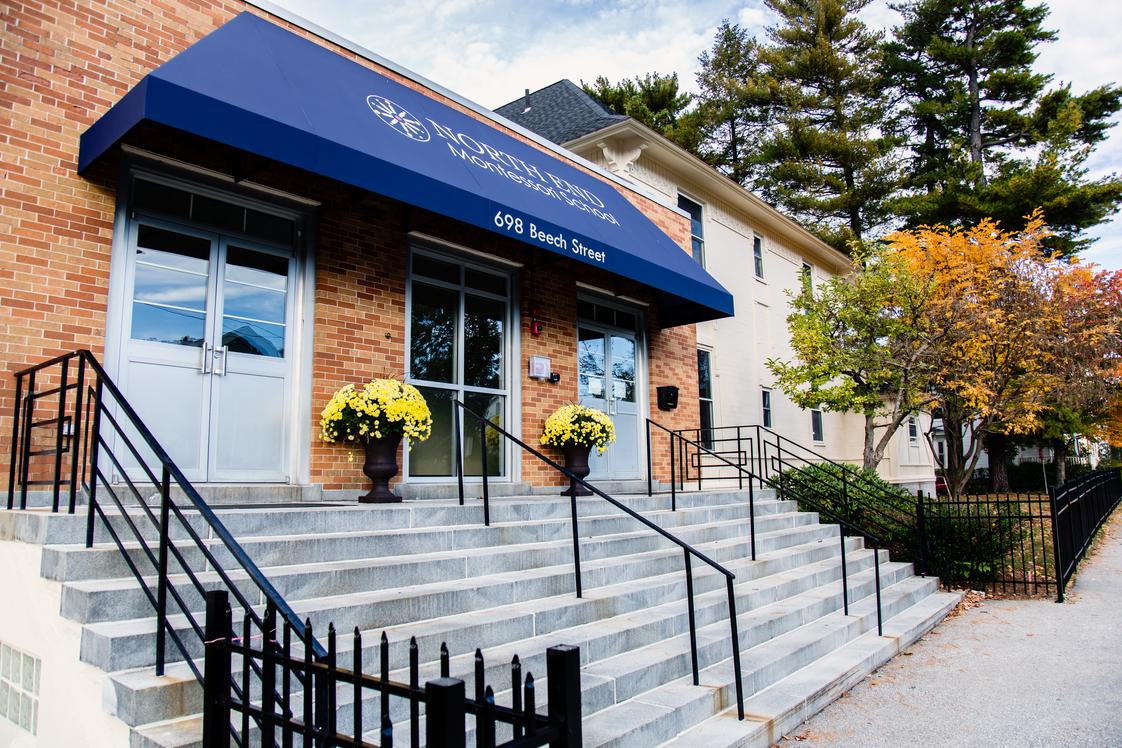The Montessori approach is unique in that it is child-centered and encourages creativity and independence. It also fosters an ongoing love of learning. This comprehensive guide explores the advantages of Montessori daycare, Montessori kindergarten, Montessori preschool and Montessori elementary school, and explains how each stage contributes to the child’s overall development.

Montessori Daycare Inspiring Self-Determination From the Beginning
Montessori daycare programs aim to develop independence and confidence among the youngest learners. These programs provide a secure, stimulating environment where youngsters as young as toddlers and infants can play and learn at their own pace. In a Montessori daycare, the class is equipped with appropriate, age-appropriate materials that encourage sensory exploration and the development of motor skills.
Teachers in Montessori daycares lead the children, not acting as traditional instructors. This technique helps develop critical thinking and creates the autonomy of children. In Montessori daycares, children are encouraged to pour water, spoon beans and wear button clothes. These activities assist in developing physical and fine motor capabilities.
Montessori Kindergarten: Foundations for Lifelong Learning
When children enter Montessori kindergarten, their focus changes slightly. They are still encouraged to be independent and to engage in self-directed activities. The Montessori kindergarten curriculum is varied and rich, encompassing language, mathematics study, cultural studies, and practical life skills.
A mixed-age class is one of the most essential aspects of Montessori Kindergarten. Children of all ages are able to learn together. It allows the older kids to teach concepts to younger ones, while the latter can help them to build on their own knowledge. This encourages children to build social skills and builds a sense of belonging within the classroom.
In Montessori kindergarten, learning is hands-on and often involves real-world applications. Math could be taught through manipulatives, such as beads and rods which help children grasp abstract concepts through physical. The development of language can also be supported through storytelling, phonetic games as well as writing exercises.
Montessori Preschool: Fostering Exploration and Curiosity
Montessori preschools continue the tradition of kindergarten and daycare by promoting curiosity, exploration, and the desire to learn. The preschool environment is carefully prepared to be both engaging and educational. The preschool is outfitted with resources and activities that are geared towards the development stages of children ranging from 3 to 6 years olds.
In the Montessori preschool, children have the freedom to select their own activities and work according to their own schedule. This autonomy can help develop an inner motivation and the sense of responsibility to their own learning. The preschool program incorporates the study of math, language and cultural studies along with real-life activities.
Practical life-skills like cooking, cleaning, and gardening are an integral part of Montessori preschool education. These exercises teach children fundamental life skills and aid them in improve their coordination, focus, as well as independence. Sensory activities are designed to enhance cognitive development and refine the five senses.
Montessori Elementary School: Preparing for Academic Success and Beyond
Montessori elementary schools continue the concept of a child-centered approach to education, with an increased focus on academic subjects, while taking care of the whole child. The curriculum is interconnected and integrated, which lets children learn the relationship between different study areas.
Elementary students at the Montessori school participate in in-depth research projects, collaborative learning, and hands-on activities. The classroom environment encourages imagination and critical thinking by using materials that accommodate all kinds of talents and interests.
A hallmark of Montessori’s elementary education is its emphasis on “cosmic learning,” which helps students understand their place within the world and the interconnectedness of all things. This approach fosters a sense of responsibility towards the natural world and others as well as preparing children to be thoughtful, informed global citizens.
In the end, the Montessori method of early childhood education, starting from kindergarten to elementary school, is a unique and effective method of nurturing a child’s development. Montessori education helps children develop the abilities they require to be successful in life. It accomplishes this by stimulating independence, curiosity, a passion for learning and a sense of wonder.
